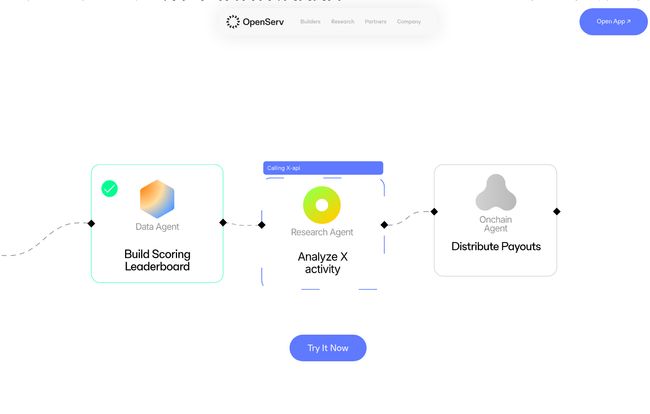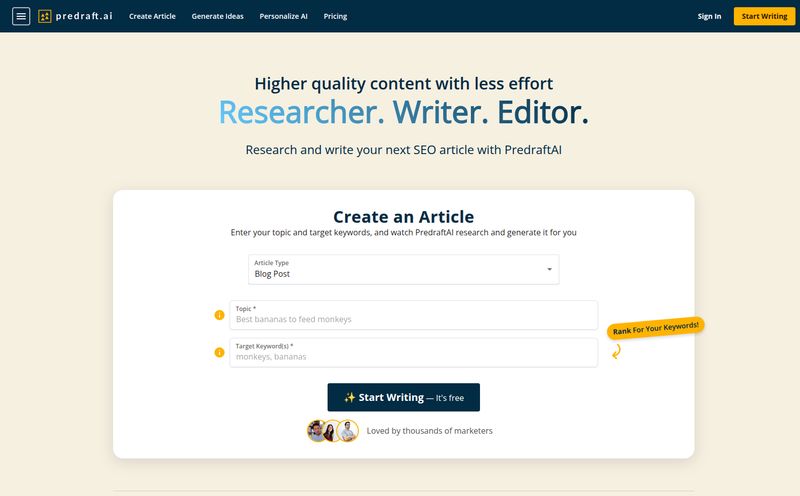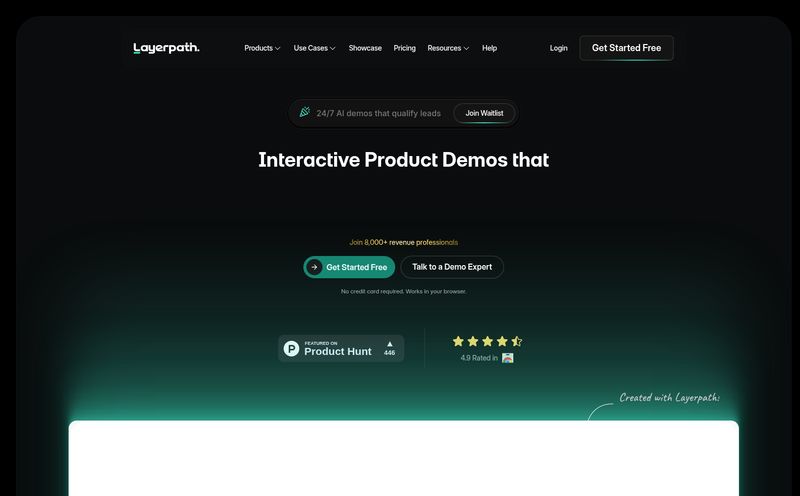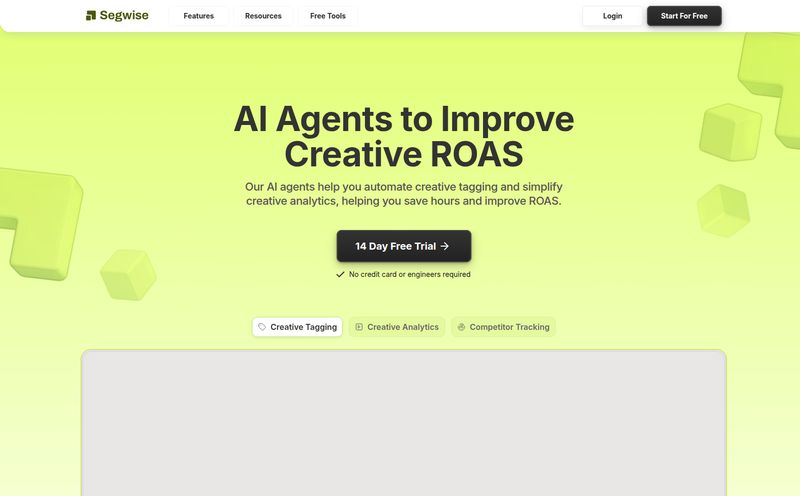In the world of SEO and digital marketing, you hear the term “AI” about fifty times before your first coffee. We’ve all played with the shiny new toys. We’ve seen them write surprisingly decent ad copy, generate images of astronauts riding unicorns, and even code a basic landing page. It’s cool. It’s impressive. But most of the time, it still feels like we’re the ones pulling all the strings.
I’ve been in this game for a while, and I’ve seen trends come and go. The latest buzz isn't just about AI that can answer a question, but AI that can do a whole sequence of tasks. We're talking about autonomous agents. Think Auto-GPT, but with a real job and a business plan. The problem? Building these things is, frankly, a massive pain. You’re wrestling with APIs, different platforms that don't talk to each other, and a whole lot of custom code. It’s like trying to build a car by sourcing every nut and bolt from a different hardware store.
That's why a new platform called OpenServ caught my eye. It’s not just another AI tool. They’re billing themselves as an “applied AI Research Lab building the infrastructure for Autonomous Agents.” Infrastructure. That’s the keyword for me. It suggests they’re not building the car, they’re building the factory. And that... that could change things.
So, What Exactly is OpenServ? (And Why Should You Care?)
At its core, OpenServ is trying to solve the orchestration problem. Imagine you want an AI to do something complex, like monitor a crypto wallet, analyze on-chain transactions for suspicious activity, and then automatically move funds to a secure location if a threat is detected. You can’t do that with one AI. You need a team.
You’d need a Data Agent, a Research Agent, and an On-chain Agent, all working in perfect harmony. This is what OpenServ calls multi-agent orchestration. It’s less about a single genius AI and more about a highly efficient team of specialist AIs. OpenServ wants to be the project manager, the communication layer, and the toolkit that lets these agents work together, seamlessly. And they're not just sticking to one playground—they're building this bridge to connect web3, DeFAI (Decentralized Finance AI), and good ol' web2.
For anyone who's ever tried to get a Webflow form to properly talk to a Google Sheet AND a custom script... you know how valuable a good bridge can be.
A Peek Under the Hood at the Key Features
Words like “proprietary AI frameworks” and “multi-agent infrastructure” sound great on a landing page, but what does it actually mean for someone wanting to build something? Based on their site and whitepaper, it boils down to a few key ideas.
Multi-Agent Orchestration is Not Your Average Chatbot
This is the big one. The platform is designed to let different, specialized agents hand off tasks to one another. Their own example paints a clear picture: a Data Agent builds a leaderboard, a Research Agent analyzes activity, and an Onchain Agent distributes payouts. That’s a real, tangible workflow. It's a sequence of actions with a purpose. This is a world away from just asking a chatbot to summarize an article. This is about creating automated, autonomous business processes.
A Playground for Developers (The SDK)
Any platform that wants to win over the tech crowd needs a solid SDK (Software Development Kit). It’s the difference between a locked black box and a box of digital Lego bricks. OpenServ seems to get this. They emphasize a “seamless developer experience,” which tells me they’re targeting the people who will actually build the next generation of agents. If they get the SDK right, providing flexible and powerful tools, we could see an explosion of creativity. I’ve always said, give developers good tools and they'll build things you never even imagined.

Visit OpenServ
Bridging Worlds From Web2 to Web3 and DeFAI
This might be their most ambitious feature. The crypto and “traditional” web worlds often operate in completely different universes. Getting them to communicate is notoriously difficult. OpenServ’s claim to support tasks across all three—web2, web3, and DeFAI—is a bold one. If they can pull it off, it opens up some wild possibilities. Imagine an agent that scrapes product reviews from a web2 e-commerce site, uses that data to inform a trading decision on a web3 DeFAI protocol, and then logs the results in a web2 database. That’s the kind of complex automation we’re talking about.
The Good, The Beta, and The Unknown
I’m an optimist, but I'm also a realist. OpenServ looks incredibly promising, but it's important to see the full picture. It's still very early days.
The big pro is that they're addressing a genuine, thorny problem. Building the infrastructure for AI agents is exactly what the space needs. It's the less glamorous work that enables all the cool stuff later on. It’s the picks and shovels for the AI gold rush.
However, the platform is currently in Beta. And what does Beta mean? It means you're an explorer, not a tourist. There might be bugs. Features might change. It also requires joining a cohort for early access, which creates a bit of an exclusive club. On one hand, this allows them to work closely with early users; on teh other, it means you can't just sign up and start playing today.
And what about the cost? I went looking for a pricing page, naturally, but was met with a classic “Page Not Found.” Honestly, I wasn’t even mad. It’s such a typical beta-stage move. It tells me their focus isn't on monetization yet; it's on getting the technology right. I can respect that. But for businesses looking to plan a budget, it remains a big question mark.
Who Is This Really For?
So, who should be sending in an application to join the OpenServ cohort? Right now, the audience seems pretty clear:
- AI Developers & Researchers: This is the obvious one. If you're actively working on agentic AI, this is a platform you should be watching.
- Web3 & DeFAI Projects: Teams building dApps, trading bots, or any kind of on-chain automation could find a powerful ally here.
- Tech-Forward Startups: Any startup looking to build a moat with complex, cross-platform automation could be a prime candidate.
One of the most intriguing lines on their homepage is “0 sales reps in our community ready.” It's a bit cryptic, but my gut tells me it’s a hint at their vision. Are they building the tools to create autonomous AI sales agents? An agent that can identify leads, research them, and initiate contact, all on its own? It's speculative, but it's the kind of thinking this platform invites.
My Final Take: Is OpenServ Worth Watching?
Yes. Absolutely. But with a dose of patience.
OpenServ isn’t a product you’ll use to write a blog post tomorrow. It’s a foundational platform. If their ambition meets their execution, they could become a fundamental layer of the next-gen internet, much like AWS became the foundation for the cloud or how Ethereum became a foundation for dApps. The focus on multi-agent, multi-chain orchestration is the right one, because the world's problems are rarely solved by one person, or one AI, working alone.
The journey will be long. But for the first time in a while, it feels like someone is building the right factory instead of just another shiny car. And I, for one, am excited to see what rolls off the assembly line.
Your Questions, Answered
1. What are autonomous agents?
Think of an autonomous agent as an AI program that can perceive its environment, make decisions, and take actions on its own to achieve a specific goal. Instead of just responding to a prompt, it can create and execute a multi-step plan. For example, an autonomous travel agent could be tasked with "book me a trip to Lisbon next month under $1500" and it would then research flights, find hotels, compare prices, and make the bookings without further input.
2. How is OpenServ different from tools like Auto-GPT?
While tools like Auto-GPT demonstrated the potential of autonomous agents, they are more like experimental projects. OpenServ aims to be the professional-grade infrastructure for building, deploying, and managing these agents reliably and at scale. It focuses on orchestration (making multiple agents work together) and bridging different environments like web2 and web3, which is a step beyond what most experimental tools offer.
3. Is OpenServ free? What's the pricing?
As of late 2024, OpenServ is in a closed Beta and has not publicly released its pricing model. Their pricing page is not currently active, which suggests they are focused on product development and working with their initial user cohorts before finalizing a pricing structure. We expect details to emerge as they move closer to a public launch.
4. How can I get access to OpenServ?
Currently, access to OpenServ is granted by applying to join one of their early access cohorts through their official website. They are likely prioritizing developers, researchers, and companies with strong use cases that can provide valuable feedback during the Beta phase.
5. What does "multi-chain" mean in this context?
"Multi-chain" means the platform is designed to interact with more than one blockchain. An AI agent built on OpenServ could potentially monitor an asset on the Ethereum blockchain, react to a signal from the Solana blockchain, and record a transaction on a third chain like Polygon. This cross-chain capability is crucial for complex DeFAI and web3 applications.
6. Is OpenServ suitable for non-developers?
In its current state, OpenServ appears to be heavily focused on developers and those with technical expertise. The emphasis on an SDK and building infrastructure suggests that a background in coding or AI development is necessary to make the most of the platform. However, it's possible they will release more user-friendly, low-code/no-code tools in the future as the platform matures.
The Bottom Line
To wrap it up, OpenServ is a name to watch in the AI space. They're not chasing the easy hype. They're tackling the hard, foundational problem of agent orchestration. If they succeed, they won't just be another tool in our kit—they'll be the company that built the whole toolbox. The road ahead is long, but the blueprint is incredibly exciting.
Reference and Sources
- OpenServ Official Website: https://www.openserv.ai/
- Andreessen Horowitz (a16z), "Emerging Architectures for LLM Applications": A great read on the infrastructure challenges in AI.



